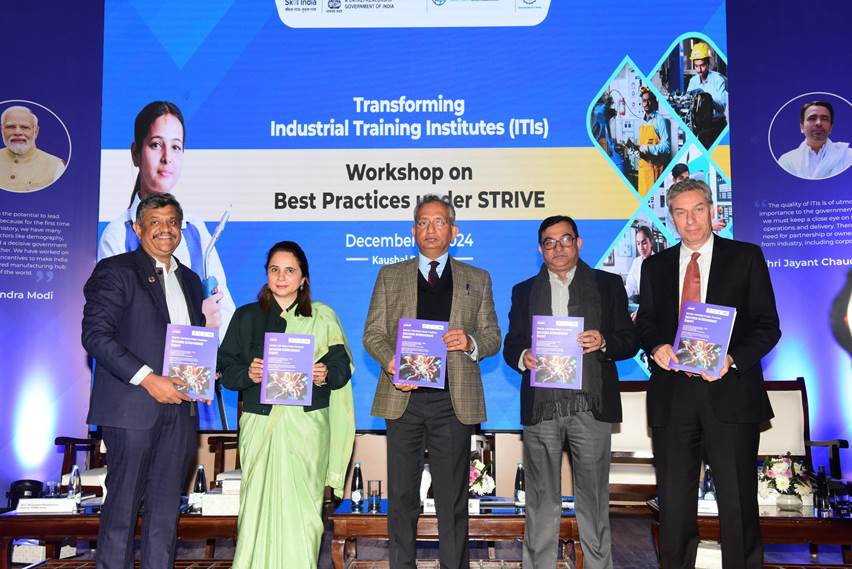In the digital age, data privacy is not merely a compliance issue—it is a cornerstone of trust and business continuity. While large enterprises have robust mechanisms and budgets to address data privacy concerns, small and medium enterprises (SMEs) and micro-businesses remain highly vulnerable to data breaches. Operating with limited financial, technological, and human resources, these businesses are prime targets for cyberattacks. Addressing these vulnerabilities requires tailored solutions and collaborative approaches to foster resilience in the SME ecosystem.
Why SMEs and Small Businesses Are Vulnerable
- Limited Budgets for Cybersecurity SMEs often operate on tight margins, leaving little room for investment in sophisticated cybersecurity tools or hiring IT specialists. Many rely on low-cost digital services, which may lack advanced security features, exposing them to potential data breaches.
- Lack of Awareness and Expertise Many small business owners lack the technical expertise to understand the complexities of data privacy and cybersecurity. This knowledge gap leaves them ill-equipped to identify vulnerabilities, implement safeguards, or respond effectively to incidents.
- Dependence on Third-Party Services SMEs frequently depend on third-party platforms for operations such as email, cloud storage, and payment processing. While convenient, this reliance creates additional points of vulnerability, especially if these platforms have weak security protocols or experience their own breaches.
- Inadequate Policies and Procedures Most small businesses lack formal data protection policies, leaving them exposed to human error, such as phishing attacks or accidental sharing of sensitive information.
- Regulatory Challenges Compliance with data protection regulations such as GDPR, CCPA, or regional equivalents is complex and resource-intensive. Many SMEs struggle to understand and implement these regulations, leaving them exposed to legal and financial risks.
Challenges of Data Privacy for SMEs
- Cost Constraints Advanced cybersecurity tools like endpoint detection systems, data encryption, and secure cloud services are often out of reach for SMEs due to high costs.
- Human Resource Limitations SMEs typically have minimal staff, with IT often managed by non-specialists or outsourced providers. This limits their ability to monitor, detect, and respond to cybersecurity threats in real time.
- Over-Reliance on Legacy Systems Many SMEs continue to use outdated hardware and software, which are prone to vulnerabilities and lack modern security updates.
- Lack of Incident Response Plans A significant number of SMEs lack formal incident response plans. In the event of a data breach, they are often ill-prepared to mitigate damage or recover quickly.
- Phishing and Social Engineering Human error remains a critical challenge. SMEs are particularly susceptible to phishing attacks and social engineering tactics, where attackers exploit employees’ lack of cybersecurity awareness.
Addressing Data Privacy Challenges for SMEs
- Awareness and Training Providing cybersecurity training to business owners and employees can significantly reduce vulnerabilities. Topics such as recognizing phishing emails, using strong passwords, and safe browsing practices are critical.
- Adopting Low-Cost Security Solutions Affordable tools such as password managers, two-factor authentication (2FA), and free versions of reputable antivirus software can provide reasonable protection for SMEs.
- Cloud-Based Security Solutions Cloud service providers offer built-in security features such as encryption and regular updates. Leveraging these services can reduce the burden of maintaining infrastructure while enhancing security.
- Collaboration with Industry and Governments Governments and industry associations can support SMEs by providing access to affordable or subsidized cybersecurity tools and offering training and resources.
- Third-Party Risk Management SMEs should evaluate the security practices of third-party vendors they rely on. Ensuring compliance with recognized data privacy standards can reduce exposure to external vulnerabilities.
- Developing Simple Policies Even one-person businesses can benefit from basic data privacy policies. These should include guidelines for data storage, sharing, and access, as well as regular reviews of software and hardware security.
Additional Challenges Faced by SMEs
- Cultural Attitudes Toward Data Privacy Many small business owners do not prioritize data privacy, viewing it as secondary to immediate business needs. This mindset can lead to lax practices and increased risks.
- Global Exposure in a Digital Economy SMEs operating in global markets face additional challenges in complying with multiple data privacy regulations, creating confusion and increasing the risk of non-compliance.
- Resource Diversion For SMEs, investments in cybersecurity are often viewed as diversions from revenue-generating activities. This creates a dilemma between short-term financial goals and long-term security needs.
- Evolving Threat Landscape Cyber threats are becoming increasingly sophisticated. Attackers now employ AI-driven tactics, making it harder for SMEs to stay ahead without equally advanced tools.
Policy and Support Recommendations
- Government Incentives Policymakers can offer tax breaks, grants, or subsidies for SMEs investing in data security, making it more feasible for them to protect themselves.
- Awareness Campaigns Public and private sector collaborations can lead to targeted awareness campaigns, educating SMEs on the importance and methods of data protection.
- Simplified Compliance Guidelines Developing straightforward, sector-specific compliance guidelines can help SMEs navigate regulatory landscapes without needing expensive legal advice.
Data privacy is no longer optional—it is a business imperative. While SMEs face unique challenges, these are not insurmountable. Awareness, education, and the adoption of cost-effective solutions can significantly enhance their resilience. Collective efforts involving governments, industry bodies, and technology providers can create an enabling environment where SMEs can thrive without compromising data security. By prioritizing data privacy, even resource-constrained small businesses can build trust, ensure compliance, and safeguard their operations in an increasingly digital world.
Author Profile
Latest entries
Digital Talent6 March 2025Talent Arena 2025: A Game-Changer for Digital Talent, Sets Stage for Bigger 2026 Edition
 Uncategorised3 March 2025Mobile Operators Drive 85% of Investments in Mobile Internet Connectivity: GSMA Report
Uncategorised3 March 2025Mobile Operators Drive 85% of Investments in Mobile Internet Connectivity: GSMA Report AI2 March 2025Samsung Expands AI-Powered Innovation to Mid-Range Smartphones with New Galaxy A Series
AI2 March 2025Samsung Expands AI-Powered Innovation to Mid-Range Smartphones with New Galaxy A SeriesCyber Security28 January 2025Data Privacy in Enterprises: Why SMEs and Small Businesses Are Highly Susceptible to Data Leakages











